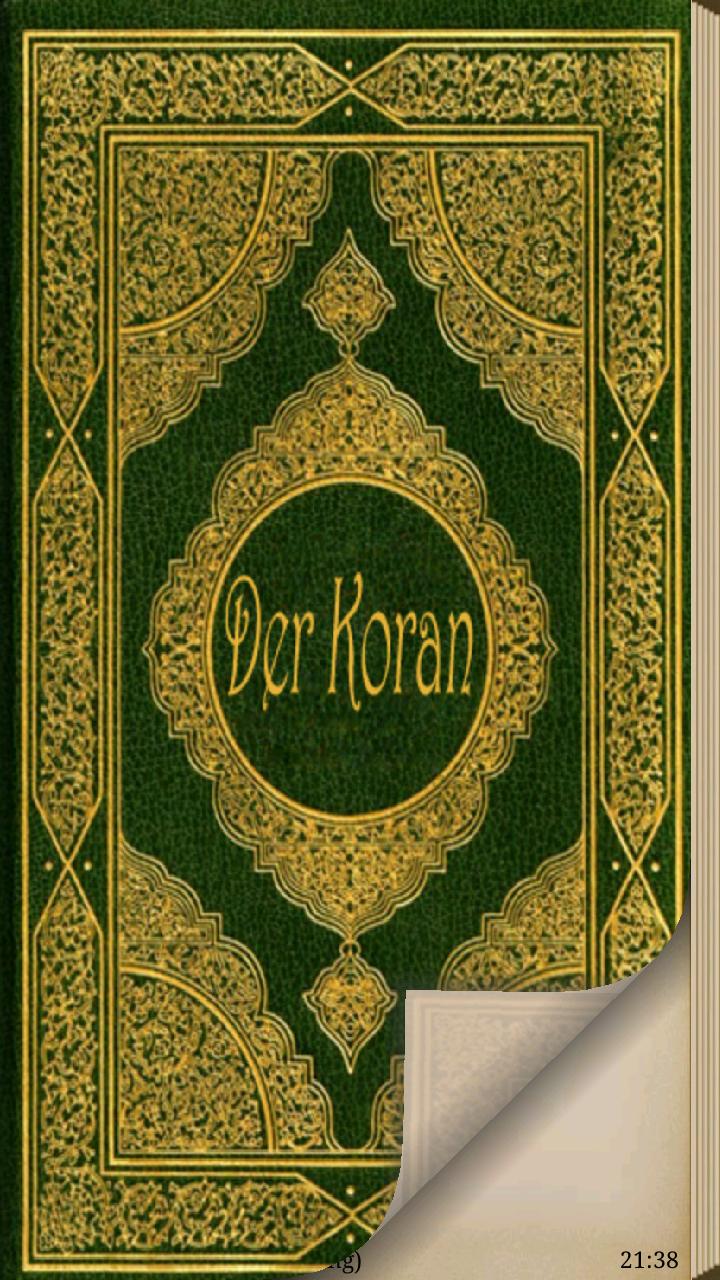
Enjoy Millions of the Latest Android Apps, Games, Music, Movies, TV, Books, Magazines & More. Anytime, Anywhere, Across Your Devices.
Koran auf Deutsch (Quran in German)
The Koran or Qur'an [Qurˈʔaːn] (Arabic القرآن al-Qurʾān 'The reading, reciting, lecture') is the Holy Scripture of Islam, which, according to the belief of the Muslims, contains the literal revelation of God (Arab. ("Understanding of dictation" of the Koran). It is written in a special rhyme prose, which is referred to in Arabic as Sadschʿ (سجع / saǧesce). The Koran consists of 114 suras, which in turn consist of a different number of verses (آيات / āyāt).
An important license plate of the Koran is its self -referentiality. This means that the Koran addresses itself in many places. Most of the Muslims' teachings regarding the Koran also rely on such self -referential statements in the Koran.
The Koran in the faith of the Muslims
For the Muslims, the Koran represents the Word of God in Arabic, the following. It is the main source of Islamic law, the Shari'a, further source of the Shari'a is the Sunna of the Prophet Mohammed. In addition, the Koran is also a aesthetic model for Arabic rhetoric and poetry. His language also strongly influenced the development of Arabic grammar. In addition to the preserved fragments of the pre -Islamic poets, the Koranian Arabic was considered a guideline for the correctness of linguistic expressions.
In Arabic, the Koran is provided with the Karīm attribute (noble, worthy). The term "the sacred Qur'an" is common among German -speaking Muslims.
Surates and verses
The suras and their names
The Koran consists of 114 with names. While in the non-Islamic world you usually call the surianism with your number, in publications on the Muslim side of Coranza, mostly referred to their Arabic names. However, the name of the sura is based on a certain word that occurs in it, but does not necessarily describe its main content. In terms of content, many suras are to be regarded as diselacted-the Sure Annisa (the women), for example, contains an important part of the Kora positions with reference to women, but otherwise also talks about inheritance law and general beliefs. Likewise, the second sura (al-Baqara-the cow) which contains a story with a cow as a victim, but conveys a large part of the legal rules and the content of the belief.
The arrangement of the suras does not follow any pattern of content; Rather, with the exception of the first sura al-Fatiha, the suras are roughly arranged lengthways (starting with the longest). For example, the shortest surge is the 107. With only three verses and 41 letters. Many other suras also deviate from the arrangement according to the length, which is seen by the Muslims as a sign that the arrangement did not happen arbitrarily. The Muslims are convinced that the arrangement of the surgery was handed down by the Prophet Muhammad. In prayer, it is therefore undesirable to recite a later surgical surge. In contrast to the Old Testament and the New Testament of the Bible, which mostly consist of chronological history books, there is no such order either within the surgery nor in their arrangement, although the chronological consequence of the suras is known.
Name, number of verses and disclosure - Mecca or Medina - are usually given in modern Koran editions in the title of the Suras. Of the 114 surs of the Koran, almost all of them begin with the Basmala (Bi-Smi Llāhi Rahmâni R-Rahīm / بسم الله الرحمن الرحيم / 'in the name of Allah, the merchant, the Merciful.'). This formula is missing in Sura 9 alone.